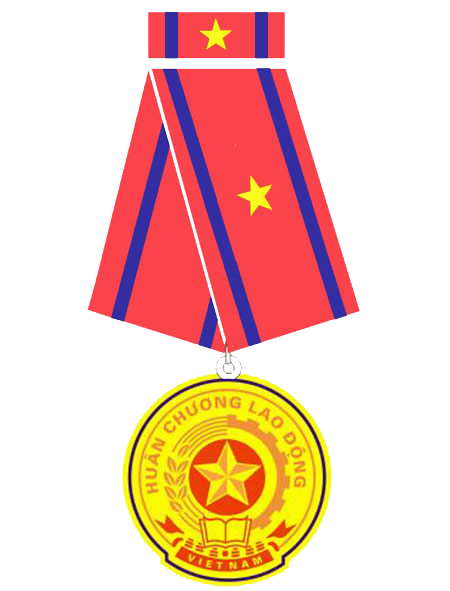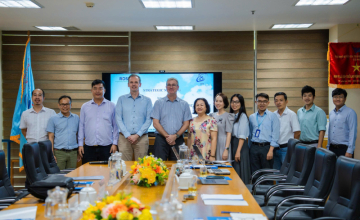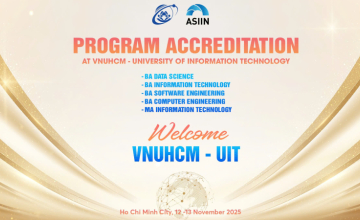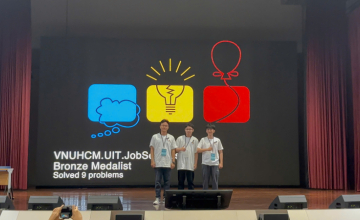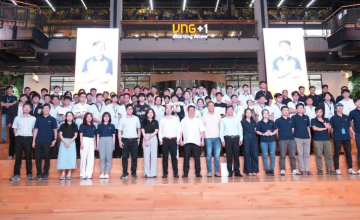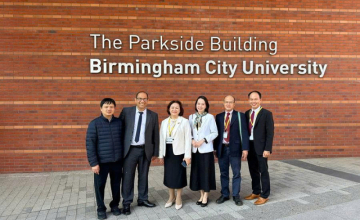1.1 Training objectives
Graduates of the Bachelor of Science program must meet the following requirements:
- Having basic and specialized knowledge in computer science (CS) and information technology, capable of designing complex computing systems, software with high scientific and technological quality, testing, management of computer systems, computer systems.
- Having ability to develop systems of IT application and analysis, design software with high practical value, innovative, especially smart applications based on the knowledge, semantic processing and natural language.
- Having ability to self-teaching, independent analysis and study of in-depth issues in the field of IT and related applications; continue to study at postgraduate level.
- Having ability to solve complex problems in arising cases while working, analyzing and proposing solutions in accordance with reality.
- Having ability to set feasible objectives, plan under reality conditions to complete assigned works.
- Having ability to socialize, work collaboratively, work in a team and work in an organization.
- Having ability to apply knowledge, skills and experiences to solve different career situations.
- Be good in English, able to communicate, work with experts, foreign colleagues.
1.2 Position and working capacity after graduation
Graduates of CS can work in various fields and areas such as:
1) Officers who analyse, design, install IT projects that meet different applications in agencies, companies, schools, ....
2) Work as a project developer who plan, develop policies to develop IT, or a software developer.
3) Work in manufacturing and outsourcing companies, in Vietnam and abroad. Work at consulting firms that propose solutions, build and maintain information systems, or work in the IT department.
4) Work as scientific researchers and information technology applicants at research institutes, centers, research institutes of ministries, universities and colleges.
5) Teach subjects related to CS at universities, colleges, vocational secondary schools, vocational schools and general schools.
1.3 Viewpoints on curriculum development
- The curriculum on a credit-based system must be aimed at serving the training objectives while providing basic knowledge, the method of critical thinking and the modern and effective working style, as well as orienting the applicability of students.
- Basic knowledge is focused, professional knowledge is introduced and transmitted on the basis of general principles that enables students to increase their motivation to self-study. It is a solid foundation for the development of knowledge and professional skills, adaptability to workplace.
- The program of BSc. in CS is interdisciplinary, highly researched and applied, suitable to human needs of IT in the society today.
- The program is close to the CS curriculum at many universities around the world. This similarity enables international cooperation and advanced training in the future. In the future there may be many forms of non-formal training but all have the same training program with the same training quality.
Details of the training program are at https://daa.uit.edu.vn/content/chuong-trinh-dao-tao-tu-khoa-7-tro-di.

